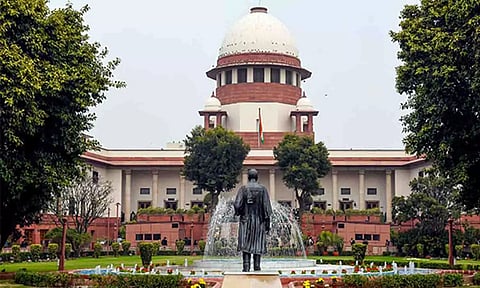

NEW DELHI: A PIL seeking to curb sex-assignment surgeries on intersex children before they attain majority was taken note by the Supreme Court on Monday which sought a response from the Centre and others, including the Central Adoption Resource Authority (CARA).
The term ‘intersex' is used for people born with reproductive or sexual anatomy which does not fit the boxes of male or female and in some cases, the surgeons perform procedures on such children to make their bodies fit the binary ideas of ‘male' and ‘female'.
The PIL also sought framing of a central law for recognising the rights of intersex children and persons.
A bench comprising Chief Justice DY Chandrachud and justices JB Pardiwala and Manoj Misra took note of the submissions of the counsel appearing for the petitioner, Madurai resident Gopi Shankar M, that such intersex persons are subjected to unregulated surgeries that put them at risk.
"Issue notice," the bench said. The top court asked Additional Solicitor General Aishwarya Bhati to assist it during the hearing of the plea.
The PIL said medical interventions for such surgeries are punishable offences in other jurisdictions. The PIL has made Union ministries of Home Affairs, Social Justice and Empowerment, Health and Family Welfare, Law and Justice, and Women and Child Development parties to the plea.
The Registrar General and Census Commissioner of India and the CARA have also made parties to the plea, which alleged that such children face discrimination since their birth as there was no option to register their birth and death details on online government registration applications.
It said sex-assignment surgeries are being performed with the consent of the parents of the children.
Such surgeries have been banned in Tamil Nadu following an order of the Madras High Court until the child has attained majority and become capable of giving an informed consent.